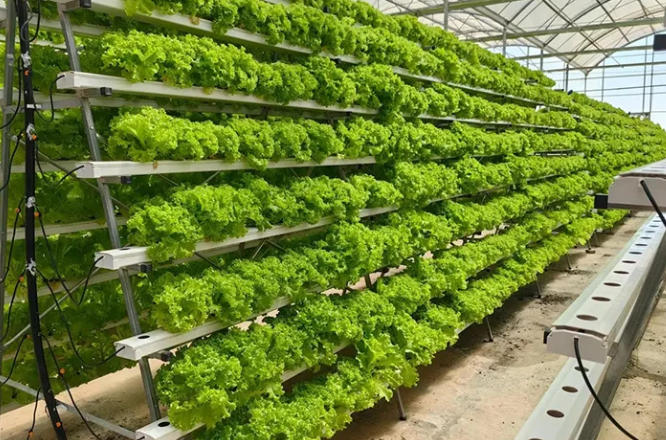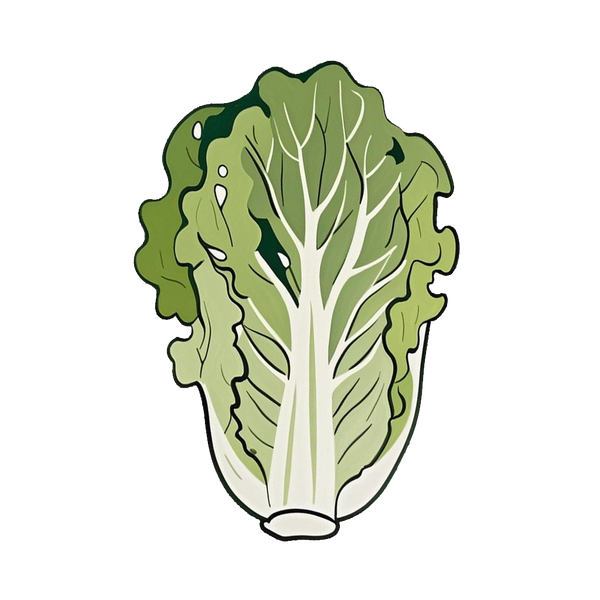
How Hydroponic Vegetable Cultivation Works
Hydroponic vegetables are a soilless cultivation technology whose core principle is to provide plants with the necessary water, nutrients, and oxygen through a nutrient solution. Specifically:
Nutrient Solution Replaces Soil: The nutrient solution contains all essential minerals and trace elements (e.g., nitrogen, phosphorus, potassium, calcium, magnesium, iron) required for plant growth, fully or partially replacing the function of soil.
Direct Root Absorption: Plant roots are directly immersed in the nutrient solution, allowing efficient absorption of water and nutrients through root hairs and other cellular structures.
Precise Environmental Control: Hydroponic systems enable precise regulation of the nutrient solution’s composition, temperature, pH, and oxygen levels, optimizing growth conditions, reducing pests and diseases, and improving yield and quality.
Recycling System: The nutrient solution can be recycled, minimizing water waste. Filtration and regeneration technologies maintain its balance and purity.
Pollutant-Free Production: Without soil, hydroponics avoids heavy metal contamination and soil-borne pests, ensuring a cleaner and more environmentally friendly process.
Rapid Growth Cycle: Hydroponic vegetables have shorter growth cycles and higher yields, making them suitable for large-scale industrial production.
Technical Requirements: Hydroponics requires specialized facilities and management, including nutrient solution preparation, water quality treatment, and system maintenance, to ensure healthy plant growth.
Typical Applications:
Hydroponic vegetable systems are ideally suited for controlled environments such as:
-
Indoor home gardening
-
Vertical farms
-
Commercial vegetable factories
These settings leverage soill cultivation to achieve high-efficiency, year-round production.
Key Benefits:
Through precise environmental control, hydroponics delivers:
30-50% higher yields compared to traditional farming
Up to 1/3 faster growth cycles
Consistent, high-quality produce with enhanced food safety
Through these principles, hydroponic vegetable cultivation not only utilizes resources efficiently but also produces high-quality, safe, and pollutant-free vegetables.



